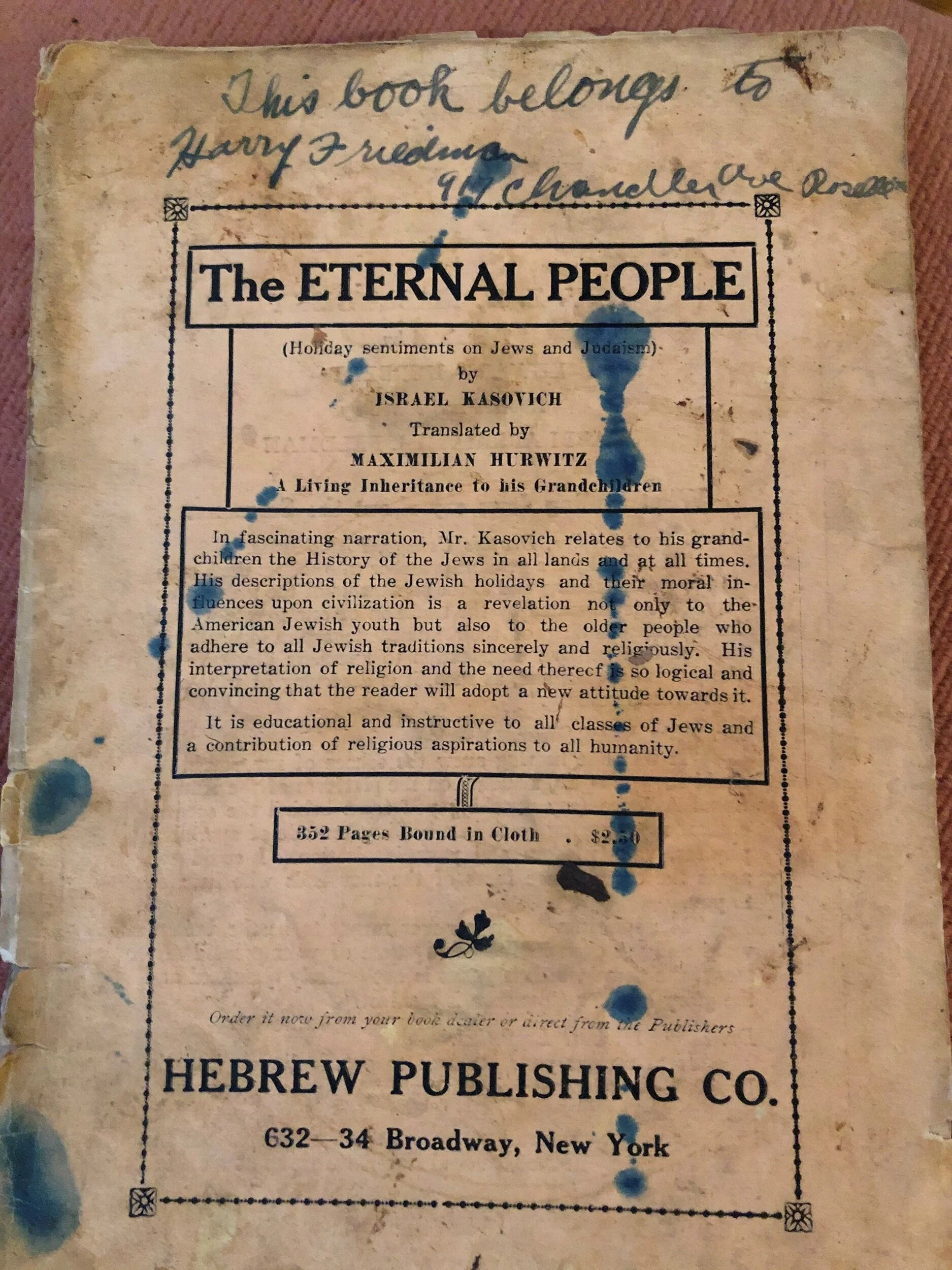MAXWELL HOUSE HAGGADAHS AND LATKES THROUGHOUT THE GENERATIONS

We celebrated Passover in a new way this year. For the first time, we sat alone at the seders (ritual feasts) due to social distancing policies imposed by the government. We shared the rest of the eight-day holiday with only those living in our home. As usual, however, the seders were conducted using the highly recognizable Maxwell House Haggadahs (ritual booklets). The historical coffee company holiday giveaways contain the narrative of the Israelites exodus from Egypt.
The oldest Haggadah in our stack was published in 1928 and shows the name and address of my maternal grandfather penciled in on the back cover. Issues of the Maxwell House Haggadah published in 1940 and 1941, were in a pile with our free 2020 version, which was also published by the popular coffee giant. The cultural icons were all stored together with the Jewish Labor Committee Haggadah from my husband’s collection.
While social gatherings were precluded this year due to the coronavirus pandemic, which included a ban on the communal Labor Seder, an added barrage of modern plagues was still meaningfully expounded at our seders. The list, which took on a whole new meaning this time around, was topped with such things as child labor, sweatshops, sexism, and racism, to name a few.
Tried and true recipes heartily enjoyed throughout the generations of our family were passed down effortlessly during Passover this year by using the social media service WhatsApp. With the touch of an iPhone camera, the recipes from my mother and mother-in-law instantaneously appeared in our children's hands. They, in turn, posted pictures that depicted trials of the various dishes they made for breakfast, lunch, or dinner.
As we watched our granddaughter via Facebook Portal, we recorded a short video of her, at one week shy of a year, savoring the taste of her great-grandmother’s recipe for “salty” latkes (matzoh meal pancakes). The next day, she sampled her other paternal great-grandmother’s “sugary” latke recipe. According to her parents, she seemed to like them both the same. In true 2020 fashion, the baby had a healthy slice of cucumber in her other hand.
The latkes were the same tasty varieties that my husband and I grew up on, as did our children. Without any large family gatherings this year, sans a dinner table shared with our children and/or brothers who live nearby, we needed only a minimal amount of Passover place settings for the two of us. A couple of my mother’s translucent green Depression glass dishes, used to serve the latkes, brought back fond Passover memories, which I hope to share with my granddaughter next year.
Alas, our dishwasher went on the fritz just as the holiday was approaching. Calling for repair service was deemed unsafe based on the new pandemic guidelines. It all brought back another strong memory for me from Passovers past as a child helping to wash the stored Passover pots and dishes in the bathtub.
Where would we be without our modern amenities and our family traditions? Life would be even more difficult during a pandemic without communication tools such as Zoom, WebEx, FaceTime, WhatsApp, Portal, Skype, or computers and smartphones, in general, and Passover without Maxwell House Haggadahs and latkes, in particular.
While we have become adept at celebrating all occasions virtually now, including our daughter’s 30th birthday on April 8th and our granddaughter’s first birthday on April 20th, we look forward to the day when social distancing is only a faded memory. We also hope that it isn’t too long before we can call for servicing on our dishwasher.
A version of this blog post was published in the Jewish Link newspaper on April 23, 2020
Salty matzah meal latkes-recipe from my mother passed down to our children. Above, our granddaughter is tasting the batch her mother made. Here are the latkes I made and served on my mother’s green Depression ware.






